Autism in Anime
Anime has something for everyone as a medium. With so many studios churning out works of various art styles, anime covers many topics such as war, economics, relationships, etc. Yet there is an area of anime that not many studios look into, and that is mental illness. There have only been a select handful titles which touch upon certain disorders such as Bipolar Disorder, Schizophrenia, Multiple Personality Disorder, etc. So where are the shows with autistic characters?
As doctors and physicians worldwide learn more about this mysterious condition, there are more television programs depicting characters with some form of the disorder. This could correlate with the growing awareness for the symptoms exhibited by those who have it or know someone who has it. But anime studios have yet to make programs or adapt manga series which feature an autistic individual as a main character.
So are there any characters in anime who show the common signs of autism? The short answer is yes. But like the disorder itself, the representation varies from character to character depending on the context of the program.
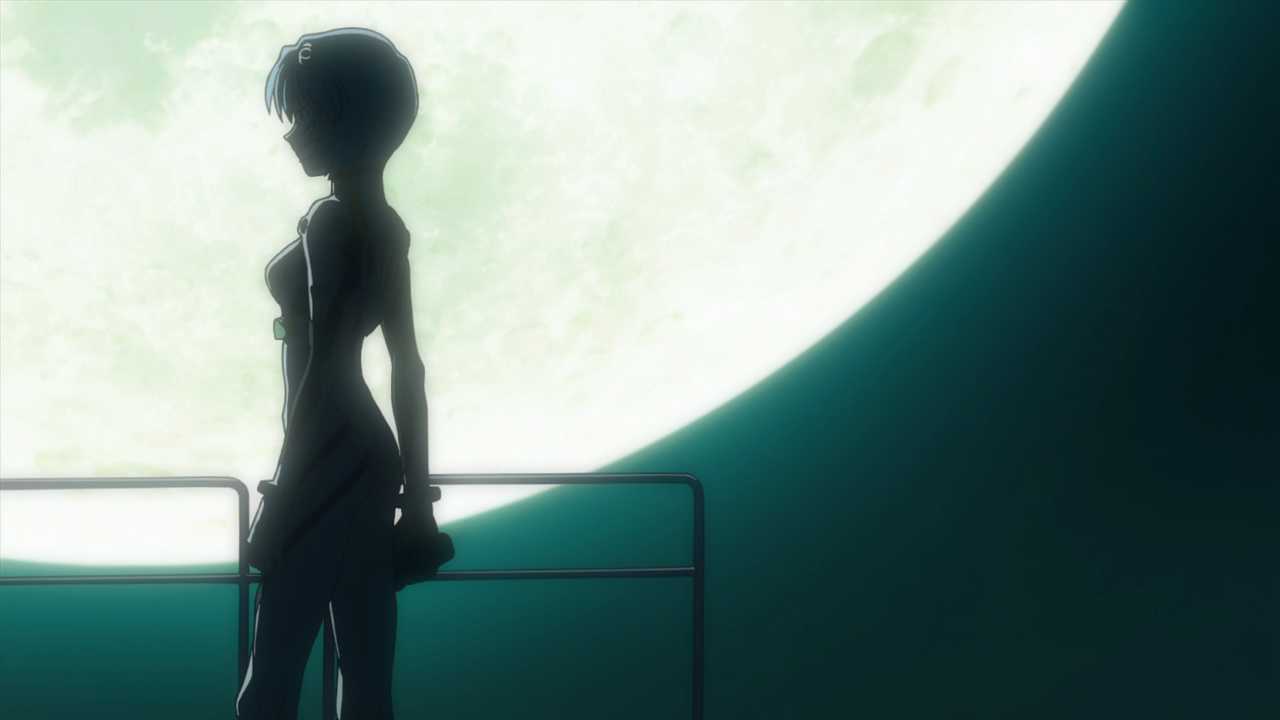
What is Autism?
According to Autism Speaks, a non-profit advocacy group in the United States, “Autism, or autism spectrum disorder, refers to a range of conditions characterized by challenges with social skills, repetitive behaviors, speech and nonverbal communication, as well as by unique strengths and differences.” About 1 in 68 children in the U.S. are diagnosed with the disorder, according to the Centers of Disease Control and Prevention (CDC). The disorder appears more often in boys than girls.
Those with a milder form of ASD, called Asperger’s Syndrome, are able to speech in complete sentences. But they struggle with social skills and have trouble grasping body language and verbal cues. Some may have a positive or negative reaction to certain external stimuli. For example, some may like the feel of clothing tags, while others may get upset by loud noises. As far as strengths and differences, some may show above average intelligence in certain areas like math, grammar, or music. But when they talk about subjects that interest them, they have trouble knowing when to stop or change subjects.
However, those on the other end of the spectrum are more severe. These individuals are nonverbal and cannot take care of themselves without assistance. Some hit or self-mutilate themselves as a coping mechanism to make up for their lack of speech. Another symptom is to rock back and forth. People with severe ASD tend to not advance beyond a high school diploma.
Japanese Views on Autism
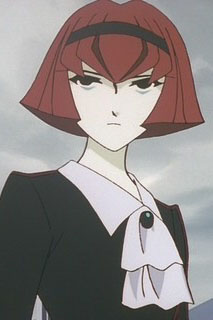
While there is an increased awareness of autism spectrum disorder in much of the West, Japan has yet to catch up. One example of how Japan views autism can be seen in the josei manga series “With the Light: Raising an Autistic Child” by Keiko Tobe. The story follows a young mother, Sachiko Azuma, and her family as they raise their son, Hikaru. Not only does the series give a realistic representation of autism, but also how Japanese society views it. Sachiko’s husband, Masato, denies that there is anything wrong with their son at first. But he later comes to terms with the fact that their son is different.
Because group conformity is ingrained in Japanese society, anyone who exhibits unusual behavior is considered incapable of fitting in anywhere. When it is revealed that the Azumas’ son is autistic, their extended family blame Sachiko herself for giving birth to Hikaru. This shows not only the lack of understanding of autism on the extended family’s part, but also the ignorance and discrimination the Azumas face from Japanese society at large.
Akira in Akira
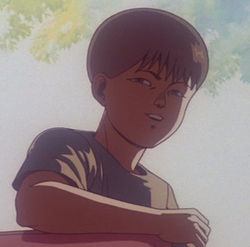
One example of an autistic character is the title character in the manga series “Akira” by Katsuhiro Otomo. In both the manga series and the 1988 anime film of the same name, Akira is a small child with godlike telekinetic powers. He is responsible for destroying Tokyo at the beginning of the story and Neo-Tokyo at the midpoint.
Although there are no explicit references to him having autism, Akira displays a few symptoms: being nonverbal and inexpressive. This is due to his immense telekinetic powers robbing him of all personality and speech. Otomo’s original intention was to portray Akira as a metaphor for the atomic bomb which decimated Hiroshima and Nagasaki during World War II. But one could make the argument that Akira mirrors an autistic person having above average intelligence at the cost of not being able to speak. There are certain autistic individuals who are nonverbal that use keyboards to communicate. While some can only type in simple words to convey meaning, others can type up complete sentences that display the above average intelligence that most people would overlook.
Rui Hanazawa in Boys Over Flowers
One of the most famous shoujo series ever made, “Boys Over Flowers” follows Tsukushi Makino’s attempts to live a quiet life at the prestigious Eitoku Academy. Her attempts are thwarted when she encounters the Flower Four, or F4, the sons of the most powerful families in Japan. In the beginning of the series, Tsukushi meets Rui Hanazawa, the quiet, introverted member of the F4. Tsukushi first encounters Rui playing the violin outside the school. Although he comes off as cold and aloof at first, Tsukushi develops a crush on him. Rui, however, harbors feelings for his childhood friend, Shizuka Todou, who helped him open up to others. Throughout the series, Rui is torn between Shizuka for her tenderheartedness and Tsukushi for her assertiveness.
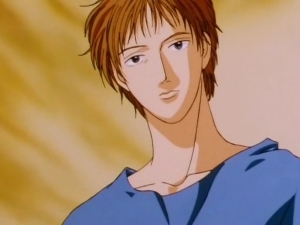
Rui’s quiet, distant personality and his talent with the violin make him a prime candidate for an autistic anime character. Many television programs portray autistic characters with some kind of talent, either in music, art, or mathematics. They also show these characters trying to form some sort of friendly and/or romantic relationship with others with varying degrees of success. In Rui’s case, he has his sights set on Shizuka at first. But he later dates Tsukushi for a time in order to forget about Shizuka. Of all the characters in “Boys Over Flowers,” Rui is the most complex. From his aloof nature to his musical talent, Rui stands out as one of the best examples of an autistic anime character done right.
Mashiro Shiina in The Pet Girl of Sakurasou
A recent anime that portrays an autistic character, “The Pet Girl of Sakurasou” follows the lives of a group of high school students living in a dormitory at their university-affiliated high school for the arts. The series’ male protagonist, Sorata Kanda, moves into a dorm filled with other misfits after the school catches him hoarding stray cats. It is there that he meets Mashiro Shiina, the titular “pet girl” of the series. Mashiro is a world-renowned art prodigy with a strong photographic memory. The only problem is that while she has high artistic ability, she doesn’t know how to take care of herself. That’s where Sorata comes in to act as her handler, making sure she gets dressed, eats her meals, and keeps her grades up during the school year.
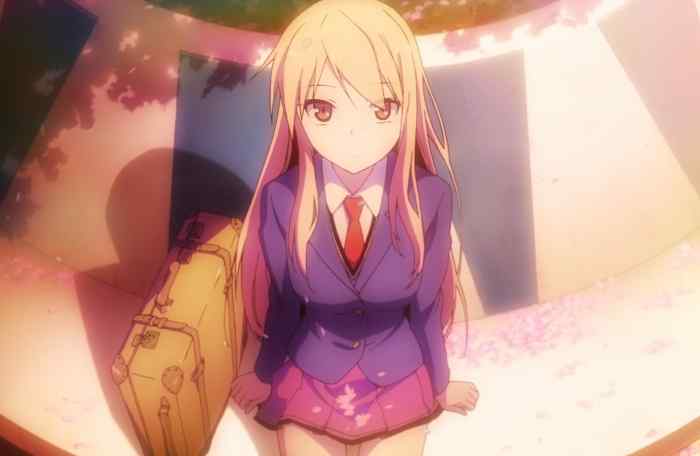
Throughout the series, Sorata, Mashiro, and their friends each struggle to better themselves in their academic and personal lives. Sorata, being an aspiring game designer, pitches his concepts to various developers but gets rejected every time. Mashiro, being an aspiring manga artist, has trouble fleshing out characters in her work because she herself struggles with making friends. So we see these two protagonists playing off of each other as they go through mental growth. After many rejections from developers, Sorata gets jealous of Mashiro’s success as an artist. This drives a wedge in their friendship for a while. Mashiro, in turn, develops feelings for Sorata as she grows accustomed to life in the dorm. At the end of the light novel series, Sorata confesses his feelings to Mashiro and they become a couple.
Mashiro represents certain autistic individuals who lack the knowledge to do basic things yet have extraordinary talents. This is a recurring symptom of the disorder. Both children and adults with autism can get so wrapped up in their own interests that they sometimes forget about the needs of others. What they lack in social skills, they make up for in above average intelligence and talent. Like Rui Hanazawa, the Mashiro Shiina that we see on the outside is only the tip of the proverbial iceberg. What lies underneath her blank stare is a shy, introverted girl who longs for human connection deep down.
Anime covers a wide variety of genres, art styles, and topics for fans around the world to enjoy. We tell stories of people who are different from us in order to show how those differences bring us together. As acceptance for this mysterious disorder continues to grow, so too might anime series that portray autistic characters the way they were meant to be seen: as human beings.
What do you think? Leave a comment.

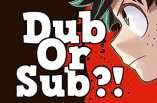
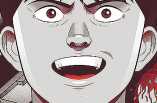
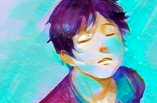
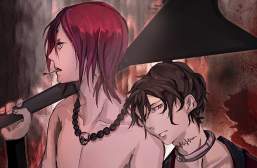
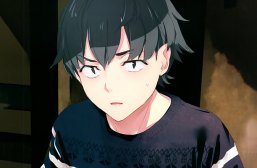

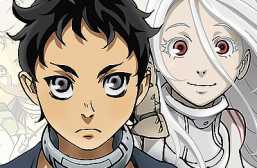
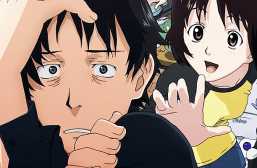
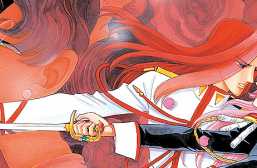
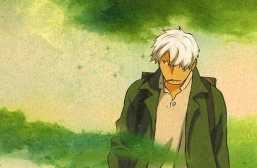
I got interested in autism in anime, because somehow I stumbled across a video of 30 anime with hidden mental illnesses. I got interested in in it, but I was surprised that autism was in it as well. Because it shouldn’t be seen as some kind of mental illness. It’s who and how you are. I myself have PDD-NOS. Also, I like Anime.
I don’t believe any of those characters were specifically designated as having autism, however they do display autism characteristics which could very likely mean they have it despite the show creators intentions or lack thereof.
Great observation.
Regarding anime characters with autism. A lot of people with autism have social issues, sure, one of my best friends has autism, but just because characters have some social issues doesn’t automatically mean they might have autism. That’s just how it be.
Now that i think about i don’t remeber ever seing an anime character with autism, even though some are pretty stupid, but not autist.
Sora, form Sketchbook: Full Color’s seemed to me an autistic, probably not the classical form of autism, but close. The anime is a very pleasant watch if you’re interested.
L has Aspergers. I have been diagnosed with it not so long ago (by the time I have written this comment) and it feels pretty cool when a pretty cool anime character is going through the same thing as you. I don’t know. For me I just feel better when someone understands what I am going through 100%.
I just love Shiina. One of those anime characters I feel like giving a big hug everytime…and someone I admire.
While finding an anime that states outright a character is autistic in the series or summary is unlikely.. there seems to be many characters that most likely have autism.. or at least might have.
Autism isn’t usually outright stated in pop culture, more often it’s implied. I have a form of autism myself, so I know what to look for. If I had to guess, I’d have to say that Nanami Lucia (Mermaid Melody Pichi Pichi Pitch) fits the bill.
Seen quite a few characters who are basically born without emotions at all (or for some reason can’t express them at all).
Shiina from Sakurasou was autistic! I think they did a good job representing it. It would be cool if more characters were autistic, though. I am also slightly autistic.
The anime subculture is by misfits -for misfits.
Something like autism is taboo back in Japan, so people up there are not exactly keen on even visiting a psychologist up there and when characters seem to be autistic to a degree (L from Death Note, Kotomi from Clannad etc.) the creators disagree with those speculations. It’s ridiculous actually but you can’t change a countries mentality like that in a short manner.
Chuunibyou is the closest character stereotype to autism.
I think that is not autism, is a sindrom but isn’t a real life sindrom
Autism varies a lot, from people who can’t exist within society and need to be fed and have all their other basic needs provided by another person to people who you wouldn’t even be able to tell are autistic unless you spent a long time talking to or watching them. It’s often characterized by a difficulty in understanding symbolism smile = happy) and in making logical jumps e.g. the aluminum can goes in the small blue trash can, so when you go outside the classroom and have a can, you put in the blue one, regardless of size of shape.
Hitagi seems slightly autistic, though I don’t think it’s intentional. She speaks bluntly, and the conversation she has with Koyomi in episode 3 when they’re talking about her waking him up naked and other sex related stuff, she sounds more like she’s trying to solve an equation than have a conversation.
Just go watch any show produced by KyoAnus or some other moe shit studio and it won’t take long for you to find them…
Shina from sakurasou
I love her 😍
Almost positive I had childhood autism and grew out of it. I use to just stare at people and not say a word for several minutes at a time. I felt like I was would rather die than have any attention on me. I got embarrassed just from talking to someone. Had no friends and said the most retarded shit you could think of the very few times I opened my mouth.. I remember I was about to ditch school and go home once because there was a girl I had to stand next to in line before getting in the classroom. They actually suggested I take special needs class but my mom refused, I turned out normal enough though :).
I was also freakishly good at math and way ahead of the curb… Grew out of that too unfortunately :/..
You cannot “grow” out of childhood autism lmao. If you were diagnosed with autism that means you have it for life. You can learn how to work around your autism and also if you are high functioning or have Aspergers but you can never get rid of it. As someone actually diagnosed with high functioning autism at a young age, I have learned the hard way that autism doesn’t go away. But I learned how to work around it and I also had help from therapist and other programs my parents got for me. The reason why you aren’t good at math anymore is most likely because you either stopped paying attention in class, became less motivated, or just stopped studying. You should go get yourself officially diagnosed if you are still curious about your autism.
If you look at the behavior, mannerisms and actions of a lot of characters, you could classify them as autistic. The creators just don’t label them as such.
You cannot “grow” out of childhood autism lmao. If you were diagnosed with autism that means you have it for life. You can learn how to work around your autism and also if you are high functioning or have Aspergers but you can never get rid of it. As someone actually diagnosed with high functioning autism at a young age, I have learned the hard way that autism doesn’t go away. But I learned how to work around it and I also had help from therapist and other programs my parents got for me. The reason why you aren’t good at math anymore is most likely because you either stopped paying attention in class, became less motivated, or just stopped studying. You should go get yourself officially diagnosed if you are still curious about your autism.
oh shoot sorry responded to the wrong person…
Unable to express emotions isn’t necessarily a trait of autism. I know people who are on the spectrum who can perfectly emphasize with others, and some who can’t (in my case, I am less of an empathetic person and generally do not concern myself with others all that much).
Even on one chart of the whole scale —let’s grab Aspergers in this case— there aren’t any people with a duplicate set of traits, and everyone exposes a different variety of signs to the outside world and therefore a lot of those signs aren’t even recognized. Everyone autistic experiences it differently and has different views, norms and opinions about things. Some may physically show signs (such as tics or stims), and for some people you might never realize it at all unless they tell you, because they fit perfectly in society and are social creatures. One of my stepmother’s cousins is heavily autistic, he can only communicate with some signs and noises, and has meltdowns almost daily, and in my case I simply differ from my peers on communicative and social levels.
I suppose psychological and mental disabilities are still somewhat on the taboo-scale in Japan, and that therefore anime-characters aren’t specifically labelled as autistic, or whatever else may be their case.
A minor secondary character but an endearing one is Saki Maruyama from Girls und Panzer. Some fans nickname her “autism-chan” for hardly ever speaking and appearing to be emotionless: usually shown staring off into space even during times of celebration.
She has one line in the TV series but it’s a brilliant one which showed that despite appearances she was fully aware of current situations and even ahead of her teammates in possible solutions — but also shows she provides such only when necessary. I find myself always looking for her in scenes with her team.
Autism can be linked to people being a genius and talented at specific things, and being obsessed with specific things.
No…. no it’s not. That’s a case for some not all and is a harmful stereotype
Been trying to look for an anime or manga with an actual autistic character in canon but with no luck.
Is it just me or is anime and manga afraid to actually give a name to a characters disorder or sickness? Always something I think about with plenty of anime-series I´ve watched. They can say that a character has a sickness but not name out what it is, my latest example was the episode of B-project where it was hinted a few episodes that the Hikaru dude had some kind of sickness which turned out to be true in an later episode. But they never in the episode said what it really was.
Well in this case it can be due to lazy writing with it being a shitty reverse harem. ;p But seen this in plenty of animes though I can’t really name out any in particular now.
Idunno, it’s probably me overthinking about this. Just me that would like to see more characters with real and canonically conifirmed disabilities. But maybe it’s still more of a taboo thing in Japan.
Would Eiji Nizuma from Bakuman maybe considered autistic?
I find the shut-in people in anime autistic.
Bubuki Buranki has a character that I am sure is autistic. Shizuru is at first look really weird, but if you look closer, you can see she most likely is autistic. She does not identify as a regular human, she regrets not being able to identify with her parents or feel any love for them (she knows they wanted a “normal” child), uses her own language, is prone to talk and react in way not really appropriate to the current situation. Has a very high intellect but cannot seem to interact normally with people.
Great read. Possibly Appachai from Kenichi the Mightiest Disciple has autism.
Thank you sooo much for writing this article. I have autism myself and it is interesting to read about these characters.
In anime people never seem to take diagnoses tests and things like that unless it involves the five senses or stuff like that.
Well, I myself didn”t realised what kind of person I was until my parents told me straight out about it in my teens, That was because if I didn”t fiigured out my own problems by myself I would never had been able to overcome them under all the years that came after.
Like, I get that the standards aren’t super high, but this reads like an essay I would have written freshman year of high school. Also, please don’t cite Autism Speaks, they are an awful organization. The Autism Self Advocacy Network is a lot better.
Eh, I understand your point, but that is from the point of view of a high functioning autist/with Asperger’s Syndrome. The thing about autism is that it is a spectrum, and Autism Speaks makes sense when looking at low functioning autist. I personally do not care fore Autism Speaks, but that is because they are not meant for me.
Autism speaks doesn’t apply to anyone!!
They are not even a proper support group, NO autistic person I know of including me likes them.
They published and add “I am autism” which says that autism will destroy marriages and so on
They have also promoted the Judge rotenburg centre in the past which used to TORTURE autistic children to “rid them of autism” which is IMPOSSIBLE
They also don’t say that they ‘only speak for those on the lower end of the spectrum’, they just speak as if they represent all. Also, the commenter is correct in that this is not a well-cited or well-researched piece, and reads like an outdated blog from the 90s…we’ve learned a TON about the spectrum in the last decade and reading this was like a step back in time.
Labels such as ‘High’ and ‘low’ are harmful to us. it diminishes what we can do and forces those labeled as ‘high functioning’ to function without resources that we need.
Agreed; I was quoting a previous commenter.
I had never thought of this before and it is interesting. I have only watched a little bit of anime before but I can understand that without labeling some characters, they do have autistic features but we never really think about it when we are watching it. We just think they are different and that’s ok. And usually they are accepted by a lot of the other characters as being just as they are. In fact, the person who shared anime with me for the first time was autistic and I got addicted after that. It was Naruto
I’m not sure it’s a good idea to stretch these characteristics far enough to classify the person as “autistic” if the author didn’t intend them to be so.
Characters who are quiet and talented that are female can be found in many shows, and are similar to how you described Rui, but these traits are also just what Japanese people find to be attractive in women. It might even be damaging to identify these characters as autistic if the author just meant them to be “weird” or “outcasts” to make them distinct from the average person in their environment. I’m not saying there isn’t/shouldn’t be representation for people with autism in anime, but claiming it’s there with such circumstantial evidence isn’t good either.
A few thoughts. Firstly, Autism Speaks is widely regarded as an autism-unfriendly organization by people who actually have autism. They treat it as a disease that needs to be cured, which understandably offends many individuals with autism. Secondly, the term you’re looking for to more accurately describe your idea is “autism CODED characters in anime”. You’re off to a good start, I would just suggest doing more research and cutting out some repetitiveness in the intro. Keep at it.
This was an enjoyable read and I think there’s a lot of good examples of anime characters displaying traits that we would associate with autism. However, I don’t think Dorothy from Big O would be a good example, if only because she’s actually an android so it becomes harder to view her from the context of autism in this case.
I think of Jotaro Kujo and Haruka Nanase (Free!!) lmao it’s wild
Kimi ni Todoke is a textbook case of high funtioning autism.
Could we say that in some way the Kuudere characters represent autism in the anime in a somewhat more diffuse way, and that the possibility of opening up to having more friends or social relationships also reflects their problems with traumatic events of the past?
I have autism and some of these animes are accurate
And also never trust autism speaks from a autustic point of view because some of the things they say are inaccurate
Excellent article. I’m a professional counselor who works with young people with autism and I have found anime to be very useful in helping young people understand and accept themselves, as well as learn how to relate to the outside world.
The little sister from Maid-Sama seems to be coded as autistic